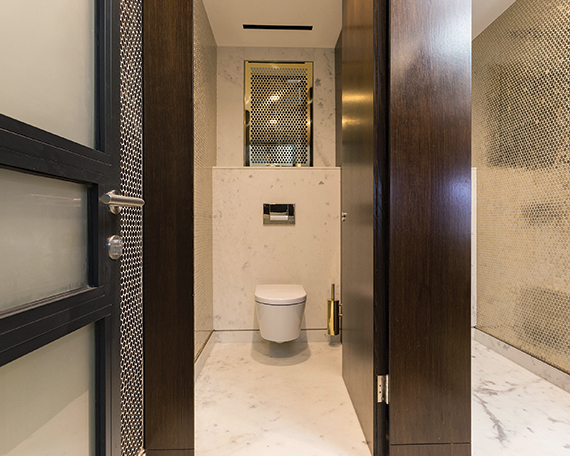John Martyn flushes out exactly what a recent decision involving toilet provision at a branch of bakery chain Greggs means for food and drink outlets
Press coverage of the recent decision in R (on the application of Kingston upon Hull City Council) v Secretary of State for Business Innovation and Skills [2016] EWHC 1064 (Admin); [2016] PLSCS 141 has suggested that all takeaways and coffee shops will be required to provide toilet facilities for their customers. By way of example, the headline in The Guardian was: “Why a new toilet law could flush cafés and takeaways down the pan”.
The decision does not go that far, but it does have implications for food and drink outlets and any business that has entered a primary authority scheme (“PAS”) arrangement under the Regulatory Enforcement and Sanctions Act 2008.
The dispute
Section 20 of the Local Government (Miscellaneous Provisions) Act 1976 empowers local authorities to issue a notice to the owner or occupier of a “relevant place” requiring it to provide toilet facilities by a specified date. “Relevant place” is defined to include a place “for the sale of food or drink to members of the public for consumption at that place”. Failure to comply with a notice is a criminal offence punishable by a fine.
Newcastle City Council was registered as Greggs’ “primary authority” under PAS. Newcastle advised the baker that its shops were not “relevant places” provided that they had fewer than 10 seats and their predominant business was takeaway sales. Greggs was entitled to rely on Newcastle’s advice throughout England and Wales.
Hull City Council issued notices requiring Greggs to provide toilet facilities in two of its premises. Greggs did not comply with the notices and Newcastle exercised its power as Greggs’ primary authority to direct Hull not to proceed with enforcement action.
The regulatory decision
Hull referred the matter to the Better Regulation Delivery Office (“BRDO”) – part of the Department for Business, Innovation and Skills (“BIS”) and now named Regulatory Delivery. In deciding whether to revoke or confirm Newcastle’s direction, BRDO was required to consider whether:
- enforcement action was inconsistent with the primary authority’s advice;
- the primary authority’s advice was correct; and
- the advice or guidance was properly given by the primary authority.
Hull argued that Newcastle’s direction should be revoked because its advice to Greggs was not correct, as it had misinterpreted the law on what constituted a “relevant place”. Newcastle submitted that its advice need not be correct provided that it represented “an informed and considered professional view of the law”.
BRDO decided that Newcastle’s advice was “correct” and the direction was confirmed. Hull applied for a judicial review of BRDO’s decision.
The judicial review
Kerr J found that Newcastle had been wrong to advise Greggs that its branches were not a “relevant place” if (a) they had fewer than 10 seats and (b) if most customers took their food away. He concluded that BRDO had misdirected itself by proceeding on the basis that Newcastle’s advice could be “correct” even if it was based on a misinterpretation. The decision was quashed, but BIS was granted leave to appeal.
Hull may now serve notices on Greggs requiring it to provide toilet facilities in the two stores. Greggs can appeal to the county court (within six weeks of service of the notice) to modify or quash the notice on the ground that it is unfair or unreasonable. The period for compliance will be extended pending a decision on the appeal.
If Greggs cannot obtain relief at the county court, a prosecution for failing to comply with the notice is likely to follow if it does not provide the required facilities within the period specified by the notice, or remove seating from the stores. If Greggs is convicted, Hull may consider bringing confiscation proceedings in order to deprive it of any financial benefit from its offending.
If Greggs continues to trade following conviction without providing the required facilities, it would commit a further offence for which a fine of £50 for each day of non-compliance may be imposed.
Guidance to food and drink outlets
Many local authorities incorporated the 10-seat threshold and the predominant business test into their own guidance. Local authorities may now revise their guidance and some increase in the number of notices served is anticipated.
It is hoped that any appeal by BIS will clarify precisely what facilities a food or drink outlet is required to provide. In the absence of clarification from the High Court, those planning to open a food or drink outlet should carry out thorough due diligence and consider any guidance published by their local authority and the relevant British Standard BS6465-1:2006+A1:2009, which recommends that establishments with up to 25 seats should provide at least one wheelchair-accessible unisex toilet.
It is suggested that the local authority be consulted before a lease is entered into for a property that does not conform to existing guidance/the British Standard.
If a notice is served, professional advice should be taken as to the viability of an appeal to the county court or defending criminal proceedings. The consequences of any failure to comply with a notice are more serious for the owners of an unincorporated business because criminal proceedings and any related confiscation proceedings will be brought against them personally.
As the first court challenge to PAS, the Greggs case will be of concern to all businesses that have entered agreements with a primary authority. The decision undermines the scheme as a business will no longer have certainty that it will not face prosecution if it follows its primary authority’s guidance.
John Martyn is a solicitor in the business crime and retail teams at Howard Kennedy








